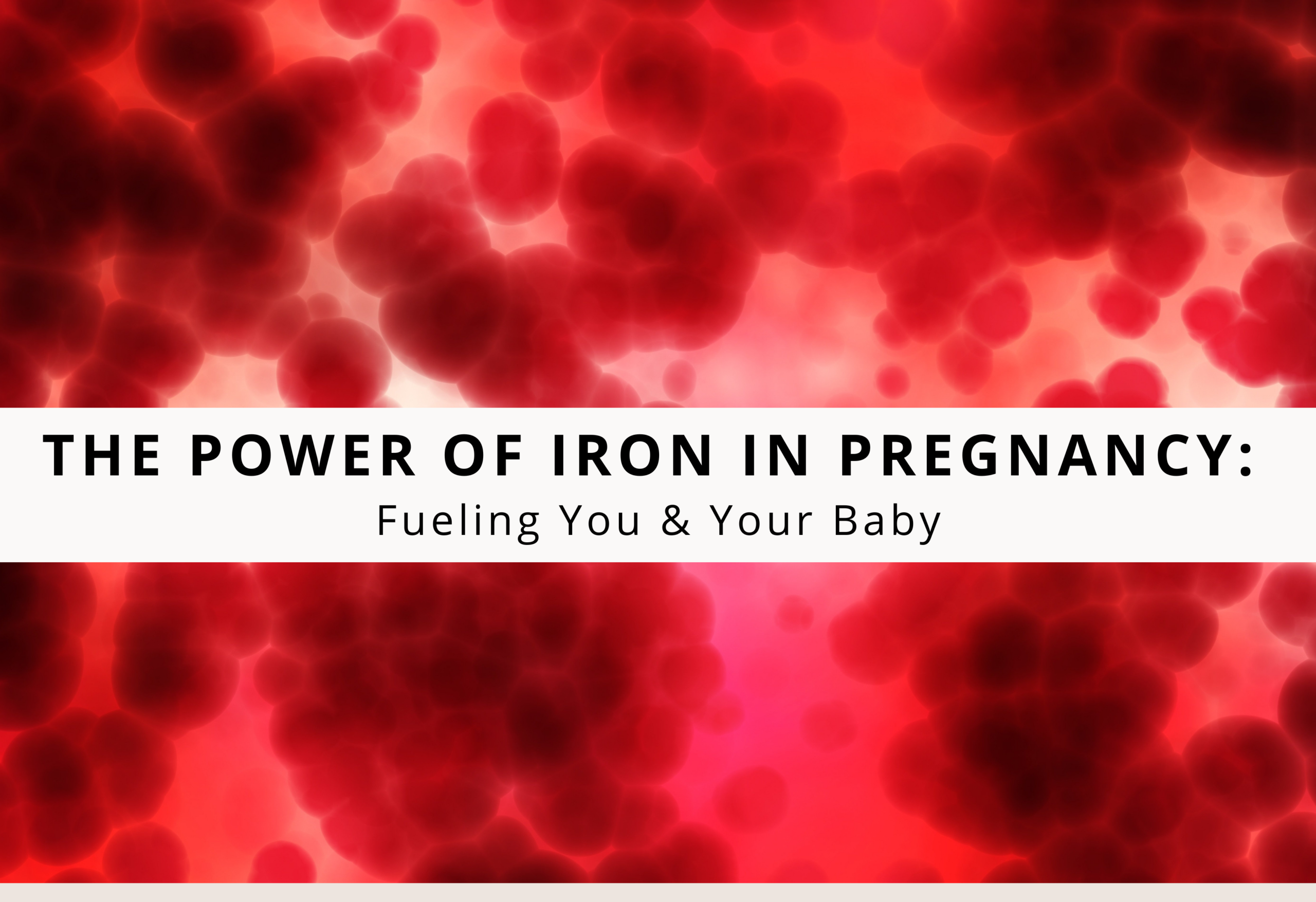Table of Contents
Pregnancy is a transformative journey filled with countless changes and demands on your body. Among the many essential nutrients needed during this time, iron stands out as a key player in supporting both your well-being and the development of your baby. In this blog post, we’ll explore the importance of iron in pregnancy, its positive effects on postpartum recovery, comfort throughout pregnancy, and how to optimize its absorption for maximum benefits.
Iron in Pregnancy: A Dynamic Duo
During pregnancy, your body requires increased iron to support the production of red blood cells, provide oxygen to your growing baby, and maintain your own energy levels. Iron in pregnancy is crucial for preventing anemia, which can lead to fatigue, weakness, and sometimes even complications during pregnancy. Iron in pregnancy plays an important role due to its involvement in several essential functions that support both the birthing person and their developing baby. Let’s dive deeper into why iron is so important during pregnancy:
- Oxygen Transport: Iron is a key component of hemoglobin, a protein in red blood cells responsible for transporting oxygen throughout the body. During pregnancy, your body produces more blood to support your growing baby. Adequate iron levels are necessary to have enough hemoglobin and ensure a good oxygen supply to your tissues and organs, including your placenta and developing baby.
- Prevention of Anemia: Iron deficiency anemia is common during pregnancy. Anemia occurs when there is a decrease in red blood cells or a low hemoglobin level. Insufficient iron intake can lead to anemia, resulting in fatigue, weakness, dizziness, and shortness of breath. Staying on top of your iron levels can prevent anemia and its associated complications.
- Fetal Development: Iron is essential for proper fetal growth and development. The developing fetus relies on the parental blood supply for oxygen and nutrients; iron is necessary for this exchange. Sufficient iron levels ensure that your baby receives the essential oxygen and supports their overall development, including forming organs and tissues.
- Cognitive Development: Iron is particularly important for brain development in both the fetus and the newborn. Research suggests that iron deficiency during pregnancy may negatively impact cognitive function and increase children’s risk of developmental delays. Ensuring adequate iron intake supports optimal brain development and sets the foundation for your baby’s future cognitive abilities.
Enhancing Postpartum Recovery
Getting adequate iron in pregnancy can contribute to a smoother postpartum recovery. Iron helps replenish the blood that is lost during birth, helping you regain strength and energy. By ensuring optimal iron stores, you can better support your body’s healing process and possibly promote a faster postpartum recovery. Having adequate iron can possibly help get your your future lactation journey off to a great start as well.

Comfort and Energy Throughout Pregnancy
Iron has a significant impact on how you feel during pregnancy. It has become normalized to feel exhausted or terrible during pregnancy, but there are several things you can do to support a healthy and more comfortable pregnancy like drinking NORA Tea. Another one of those is getting sufficient iron levels because it may help alleviate common discomforts such as fatigue and lethargy, reducing the overwhelming exhaustion that many pregnant individuals experience. By maintaining adequate iron stores, you can enhance your overall well-being and enjoy a more comfortable pregnancy.
Battling heartburn discomfort during pregnancy? Read how papaya enzymes could help you here.
Iron and Calcium: The Importance of Timing
While both iron and calcium are essential nutrients, they can interfere with each other’s absorption when taken at the same time. Calcium can inhibit the absorption of iron when consumed at the same time, potentially leading to iron deficiency. To optimize iron absorption, it is recommended to separate iron and calcium supplements by a few hours. Prenatal vitamins contain calcium, so if you take your iron supplement with your prenatal the calcium can possibly cancel out the iron. Consulting with your healthcare provider can help you establish a suitable supplement schedule that ensures maximum nutrient absorption.
The Magnesium Connection: Preventing Constipation
Iron supplements can sometimes cause constipation, a common concern during pregnancy. By ensuring you get enough magnesium daily, you can help alleviate this issue. Magnesium acts as a natural laxative, promoting regular bowel movements and preventing constipation. Incorporate magnesium-rich foods such as leafy greens, nuts, seeds, and whole grains into your diet or consult your healthcare provider about magnesium supplements like Calm or Thorne’s Magnesium-Calcium supplement.

In Conclusion
Iron plays a vital role in supporting both you and your baby during pregnancy. By maintaining adequate iron levels, you can enhance your postpartum recovery, experience a more comfortable pregnancy, and combat fatigue. Remember to separate iron and calcium supplements to optimize their absorption, and consider incorporating magnesium-rich foods or supplements to prevent constipation caused by iron supplementation. Prioritize your iron intake and consult with your healthcare provider for personalized guidance on meeting your iron and overall nutritional needs during this special journey.
To ensure sufficient iron intake during pregnancy, it is important to consume iron-rich foods such as lean meats, poultry, fish, legumes, fortified cereals, and leafy green vegetables. In some cases, iron supplements may be recommended by your healthcare provider to meet your iron needs.
Disclaimer: The information provided in this blog post is for educational purposes only and should not replace professional medical advice. Consult with your healthcare provider for personalized recommendations and guidance.




